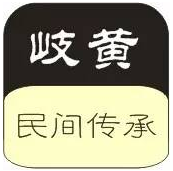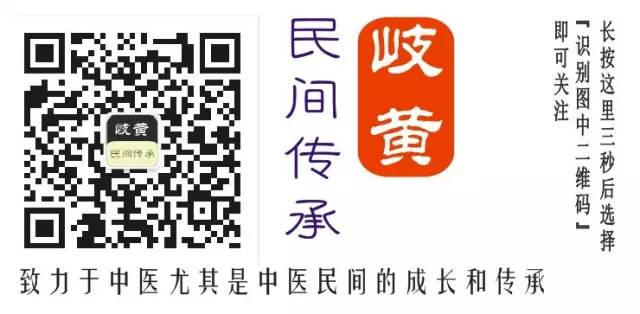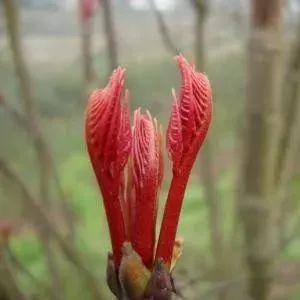

“The Most Popular Traditional Chinese Medicine Public Account”
“The Most Popular TCM Public Account”
Dedicated to the growth and inheritance of Traditional Chinese Medicine, especially folk TCM
Accompanying TCM practitioners in their growth every day
Issue No. 679

Author: Peng Zhiping
China Academy of Chinese Medical Sciences
Editor / Zhao Xin ⊙ Proofreader / Duan Rui
Long TCM Novel“The Unmatched Ice of TCM” Part One: “The Ancient Tomb of Taibai” (Click to read automatically)Can be viewed in historical articles.Follow Qihuang Folk Inheritance (Public Account: qhmjcc) for healthy and happy reading.

Professor Liu Baohe from Hebei University of Chinese Medicine has been engaged in clinical and teaching work for over 40 years, focusing on the research and exploration of blood stasis syndrome. He is adept at understanding blood stasis syndrome through inquiry, pulse diagnosis, and abdominal examination. For the blood stasis syndrome characterized by “long-term illness entering the collaterals” and “long-term pain entering the collaterals,” he has achieved good therapeutic effects using Ye Tianshi’s “Xun Run Tong Luo” formula.
Ye Tianshi’s Xun Run Tong Luo formula consists of seven herbs: Xuanfu Hua (Inula Flower), Tao Ren (Peach Kernel), Bai Zi Ren (Platycladus Seed), Dang Gui (Angelica Sinensis), Ze Lan (Lycopus), Qian Cao (Rubia), and Yu Jin (Curcuma). Among them, Xuanfu Hua, Dang Gui, Ze Lan, and Yu Jin have a dispersing nature, while Tao Ren and Bai Zi Ren have a softening and moistening nature, thus forming a harmonious formula. Tao Ren, Dang Gui, Ze Lan, Qian Cao, and Yu Jin can invigorate blood and resolve stasis, while Qian Cao and Yu Jin can clear heat to eliminate stasis heat. Additionally, Yu Jin can soothe the liver and regulate qi, and Dang Gui can nourish and replenish blood, allowing stasis to be resolved without harming the righteous qi. The entire formula works to soothe the liver, regulate qi, invigorate blood, and open the collaterals.
Professor Liu Baohe applies this formula for the following indications: Patients often feel heavy and fatigued throughout the body, with symptoms worsening after rest, especially during sleep, and alleviating with activity; there is significant tenderness one inch above the navel, and the abdominal aorta pulsation is stronger than normal; the pulse is deep and rough, especially with a notable roughness at the left guan position; the onset of the disease can be traced back five years, often with a history of trauma. Here are four case studies to observe its efficacy.
Case 1: Lower Limb Edema
Meng, female, 79 years old. Initial diagnosis on May 3, 2009. The patient has had bilateral lower limb edema rated at three to four plus for ten years. An ECG has shown abnormalities for over ten years, liver function is normal, and urinalysis is normal. At 30 years old, she underwent surgery for cervical cancer, which recurred the following year after 15 sessions of radiotherapy. She experiences urinary incontinence and unsatisfactory bowel movements. Upon examination, there is a sensation of heaviness in both lower limbs, worse at night, alleviating with activity, with pain in the waist and right flank, and cold intolerance in hands and feet, worsening on rainy days. Appetite is good, but she has difficulty falling asleep. The tongue is dark with a thin white coating, and the pulse is deep and rough, with notable roughness at the left guan position. Abdominal examination reveals significant tenderness one inch above the navel. Blood pressure is 170-180/60 mmHg. Prescription: Xuanfu Hua, Tao Ren, Bai Zi Ren, Dang Gui, Ze Lan, Qian Cao, and Yu Jin, each 10 grams; Yi Mu Cao (Motherwort) 30 grams; Fu Ling (Poria) 10 grams; Ze Xie (Alisma) 10 grams; Che Qian Zi (Plantago Seed) 10 grams; Yi Yi Ren (Job’s Tears) 10 grams; Yu Li Ren (Bush Cherry Seed) 10 grams; Sheng Mu Li (Raw Oyster Shell) 30 grams. 7 doses, decocted in water, one dose per day.
On May 12, 2009, follow-up visit showed reduced leg swelling, rated at (+), indicating the medication was effective. The original formula was continued for another 14 doses, resulting in recovery.
Note: The “Jin Gui Yao Lue: Water Qi Disease Pulse Diagnosis and Treatment” states: “If blood is not flowing well, it leads to water retention.” The patient has blood stasis obstructing above the navel, causing blood flow to be impeded, leading to the accumulation of dampness. Water is a yin pathogen, heavy and turbid, easily attacking the yin position, hence the lower limb edema and heaviness, with waist and right flank pain due to obstructed local qi and blood flow. Internal dampness stagnation leads to dysfunction of the San Jiao (Triple Burner), causing the limbs to lose the warmth of yang qi, resulting in cold intolerance in the waist and preference for warmth, and cold hands and feet. Liver dysfunction leads to urinary incontinence and unsatisfactory bowel movements. Rainy days exacerbate internal dampness, causing leg pain and discomfort. At night, blood flow slows, worsening stasis, hence increased swelling at night. The pathway for yang to enter yin is obstructed, leading to difficulty falling asleep. The patient has a long disease course, with stasis deeply penetrating the collaterals, thus treatment should focus on invigorating blood and opening the collaterals to address the root cause, while also using diuretics to alleviate the symptoms. The formula used is Ye’s “Xun Run Tong Luo” formula, supplemented with diuretic and softening herbs for efficacy.
Case 2: Hypertension
Zhang, female, 47 years old. Initial diagnosis on August 27, 2008. She reports morning blood pressure of 200/130 mmHg and nighttime blood pressure of 150/90 mmHg for 7-8 years. When blood pressure is high, she feels heavy-headed, which alleviates after getting out of bed. She feels discomfort throughout her body upon waking, but her appetite is good. At 35 years old, she was in a car accident, and the onset of her symptoms coincides with five years after that incident, with only right knee pain at that time. The tongue is red with purple spots at the edges, thin white coating, and the pulse is deep, wiry, and rapid, with notable roughness at the left guan position. Abdominal examination reveals tenderness one inch above the navel. Blood pressure is 170/110 mmHg. Prescription: Xuanfu Hua, Tao Ren, Bai Zi Ren, Dang Gui, Ze Lan, Qian Cao, and Yu Jin, each 10 grams. 7 doses, decocted in water, one dose per day.
On September 3, 2008, follow-up visit showed blood pressure reduced to 140/90 mmHg, with significantly reduced heavy-headedness and improvement in other symptoms. The original formula was continued for another 7 doses, and on the third follow-up, blood pressure was 130/85 mmHg, with no discomfort reported. Another 7 doses were given to consolidate the treatment.
Note: Observing this patient, although her blood pressure is high throughout the day, it is unstable and there are no typical hypertension symptoms such as dizziness. This is due to the liver qi rising in the morning, causing yang qi to ascend, while blood stasis obstructs the normal descent of yang qi, resulting in higher blood pressure at that time. Activity helps qi and blood flow, thus slightly alleviating blood stasis, which reduces blood pressure. The discomfort upon waking is also a typical manifestation of blood stasis syndrome. All symptoms are due to the blood stasis left from the car accident, which was not cleared in time, and has long since entered the collaterals. Therefore, treatment should focus on soothing the liver, regulating qi, invigorating blood, and opening the collaterals using the “Xun Run Tong Luo” formula for efficacy.
Case 3: Weak Hands and Leg Discomfort
Peng, female, 28 years old. Initial diagnosis on August 24, 2008. The patient reports weakness and heaviness in both hands, worsening with activity, and discomfort in the legs that prefers kneading and tapping, for over 20 years. She experiences heat for 6-7 days before menstruation, which subsides after menstruation, and was married at 22 years old. The last menstruation was on August 19, 2008, lasting 5 days with blood clots, and she started menstruating at 14 years old. She has dry mouth, especially in the morning, good appetite, and does not feel discomfort when hungry, can sleep, but sometimes feels irritable, does not cough, occasionally feels dizzy, and has decreased memory. The tongue is red with cracks in the middle, thin white coating, and red spots at the edges, with a deep, rough, slippery, and rapid pulse, notably rough at the left guan position. Abdominal examination reveals tenderness one inch above the navel, and strong pulsation of the abdominal aorta under the fingers. Prescription: Xuanfu Hua, Tao Ren, Bai Zi Ren, Dang Gui, Ze Lan, Qian Cao, and Yu Jin, each 10 grams; Sha Shen (Adenophora) 10 grams; Mai Dong (Ophiopogon) 10 grams; Sheng Di (Rehmannia) 15 grams; Gou Qi Zi (Goji Berry) 10 grams; Chuan Lian Zi (Toosendan) 6 grams; Huang Jing (Polygonatum) 10 grams; Jiao San Xian (Fried Three Immortals) each 10 grams; Du Zhong (Eucommia) 10 grams; Sang Ji Sheng (Mulberry Mistletoe) 10 grams; Wu Wei Zi (Schisandra) 6 grams; Shan Yao (Chinese Yam) 10 grams; Bai Shao (White Peony) 10 grams; Zhi Gan Cao (Honey-fried Licorice) 6 grams; Dan Pi (Moutan Cortex) 10 grams. 7 doses, decocted in water, one dose per day. On August 31, 2008, follow-up visit showed significant improvement in leg discomfort, with increased strength in hands, and reduction in other symptoms. The treatment was adjusted and continued until recovery.
Note: The patient has blood stasis internally retained, leading to poor circulation of qi and blood, resulting in leg discomfort that prefers kneading and tapping; the heat before menstruation is due to stasis heat, and the subsiding of heat after menstruation indicates that some blood stasis can be expelled with menstruation, as evidenced by the presence of blood clots. Blood stasis obstructs the ascent of clear yang, leading to dizziness and decreased memory, while the weakness and heaviness in the hands, worsening with activity, indicates deficiency. Dry mouth in the morning and cracks on the tongue indicate liver yin deficiency. Therefore, treatment should focus on invigorating blood and opening the collaterals, nourishing liver yin, using the “Xun Run Tong Luo” formula combined with Bai Shao and Gan Cao decoction, supplemented with Dan Pi to clear internal heat, and adding Huang Jing, Jiao San Xian, Du Zhong, Sang Ji Sheng, Wu Wei Zi, and Shan Yao to nourish the liver and kidneys.
Case 4: Abdominal Distension
Xie, male, 15 years old. Initial diagnosis on August 3, 2008. The patient feels abdominal distension and discomfort, with a sensation of blockage, but it does not affect his appetite, and he does not like to burp. He can sleep but sometimes shouts (spontaneous shouting, “ah” sound). Two months prior, he experienced a sudden tightening sensation in the heart area, with a feeling of oppression in the chest, and after shouting, he had increased salivation. The tongue is pale red with a thin white coating, and the pulse is wiry and rough, with notable roughness at the left guan position. Abdominal examination reveals tenderness one inch above the navel. Inquiring about the medical history, it coincides with five years ago when he was hit in the abdomen. Prescription: Xuanfu Hua, Tao Ren, Bai Zi Ren, Dang Gui, Ze Lan, Qian Cao, and Yu Jin, each 10 grams. 14 doses, decocted in water, one dose per day. On August 17, 2008, follow-up visit showed significant improvement, with no shouting, and abdominal distension only occurring during stressful situations. The original formula was continued for another 7 doses, resulting in recovery.
Note: The stomach governs the descent of turbid substances; if it cannot descend, abdominal distension and discomfort will occur. The sensation of blockage without affecting appetite indicates that there is no physical obstruction in the stomach. The liver governs the ability to express, and the spontaneous shouting is due to liver qi stagnation. Qi stagnation in the chest leads to oppression, while stagnation in the heart leads to tightening sensations. The fundamental cause of the stomach qi not descending and qi dysfunction is the blood stasis obstructing one inch above the navel, hence the use of the “Xun Run Tong Luo” formula to soothe the liver, regulate qi, invigorate blood, and open the collaterals.
|
I This article is excerpted from “China Traditional Chinese Medicine News”, Issue 3619, 2011.I Copyright belongs to the relevant rights holder. If there is any improper use, please contact us for immediate deletion.I Submission email:[email protected]I Consultation and cooperation:WeChat ID: lianshangpuying. I Warning: The content of this article is for the popularization of TCM knowledge only and is not intended as a prescription. Please consult a physician for differential diagnosis and use.. |


